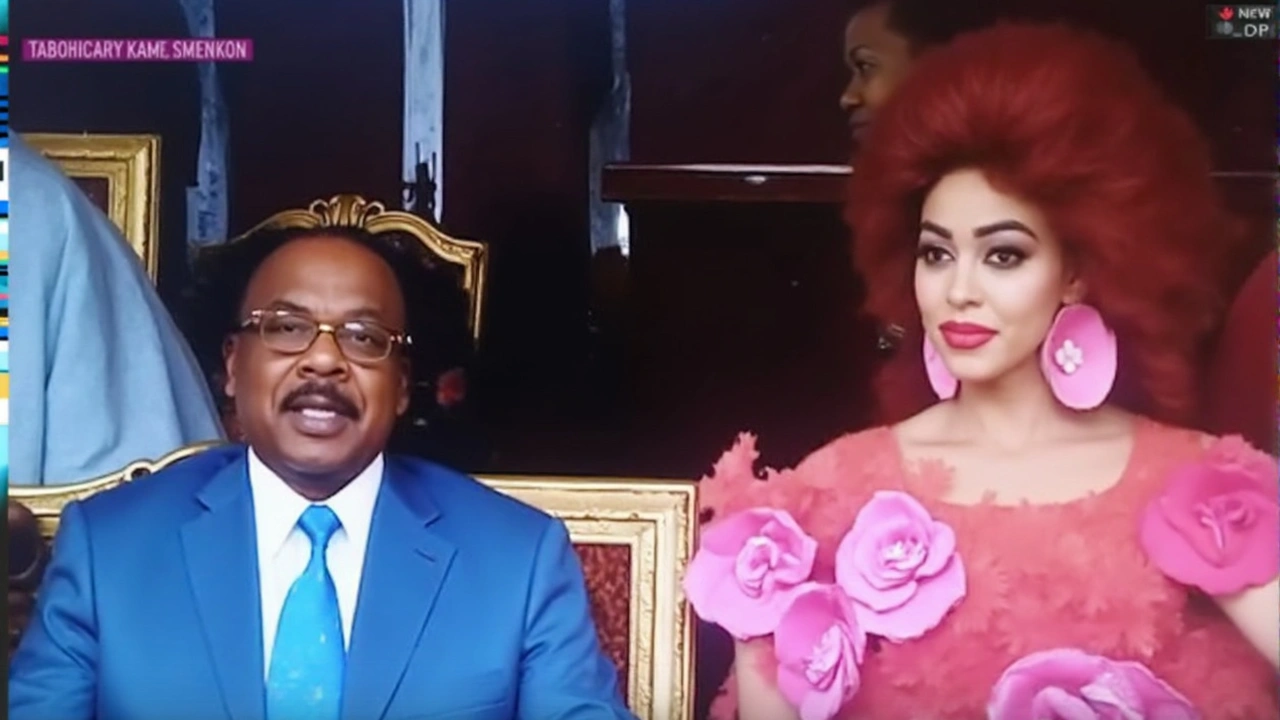Paul Biya's Eighth Term: Cameroon's Leadership Tested by Age and Controversy
Paul Biya, Cameroon's sitting president and the oldest head of state in the world, has unexpectedly thrown his hat in the ring for yet another term. Announcing his candidacy for the 2025 presidential election at the age of 92, Biya points to 'numerous and insistent' calls by Cameroonians urging him to continue leading. But on the ground, this claim is met with skepticism, if not ridicule, in a nation where open political discussion often carries genuine risks.
For many, Biya's announcement didn't come as a dramatic surprise, but more as another line in a decades-old script. He’s been in power since 1982, surviving through political changes that would have unseated many others. A key moment came in 2008 when term limits were abolished, a move many critics saw as engineered precisely to secure his indefinite rule. In Cameroon’s current electoral system, where the 'first-past-the-post' rule meets an ever-growing tangle of more than 300 opposition parties, it gets even easier for Biya to retain control. With the opposition so fragmented, no single challenger can gain the momentum needed to unseat a leader with state resources on his side.
Biya’s supporters insist he still has the leadership qualities required, brushing off concerns about his advanced age. Ngono Marius, a vocal backer, claims that age brings wisdom and that the country benefits from his stability. Step outside those circles, though, and the mood changes sharply. Critics, most of whom prefer anonymity for their safety, see the spectacle of a 92-year-old running again as bordering on the absurd. One public worker said the real public mood can only be whispered: criticism, especially when directed at Biya, carries genuine consequences. That climate of fear isn’t new—watchdogs such as the Committee to Protect Journalists have flagged how reports on Biya's health and governance routinely get smothered by authorities. This fosters public suspicion and erodes trust between citizens and their government.
Fragmented Opposition and a Future Clouded by Uncertainty
Inside Cameroon, the sense of being backed into a corner is palpable for those dreaming of political change. Despite plenty of capable individuals and movements, over 300 opposition parties jostle for space, unable to coalesce around a single figure or plan. Collins Molua Ikome, a prominent opposition voice, has called for a transitional coalition—essentially a united front—to finally challenge Biya’s long grip on power. So far, the divisions and rivalries have been too deep, meaning the opposition spends more energy fighting among themselves than presenting a real alternative. For as long as this continues, Biya’s re-elections remain not just possible but likely.
Biya’s nearly half-century in office has been marked not just by controversy over his reelection bids, but also by real-world impact. During major episodes of unrest—most notably the protests and violence in 2006 and 2009—he was criticized for being absent and seemingly disengaged as turmoil unfolded. International investigations, especially by organizations like the OCCRP, have pointed to his frequent disappearances and the lack of responsiveness during these critical moments. The country has seen economic stagnation and a persistent clampdown on civil liberties, further muddying Biya’s legacy.
If victorious, Biya would extend his rule until close to his 100th birthday. The sheer length of his tenure, combined with an opaque political system and a deeply divided opposition, paints a picture of a nation locked in a holding pattern. Paul Biya continues to cast a long shadow over Cameroon—but as the world and more Cameroonians start to question the limits of age and leadership, the 2025 election could prove more unpredictable than Biya expects.

Madhuri Singh
July 16, 2025 AT 21:32Lakshmi Narasimham
July 18, 2025 AT 12:37Jessica Herborn
July 19, 2025 AT 21:19Cameroon deserves better. Not a relic. Not a ghost. Not a man who outlived his usefulness and still refuses to die politically. The constitution was twisted. The people were silenced. The media was gagged. And now we pretend this is democracy?
What is more dangerous than a corrupt leader? A leader who is so old he forgets his own name but still holds the nuclear codes.
Let me be clear: this is not leadership. This is a medical emergency wrapped in a flag.
And yet the international community watches. Silent. Complicit. Because oil and minerals matter more than human dignity.
Where are the sanctions? Where are the condemnations? Where is the moral courage?
They call him stable. Stability built on fear is not stability. It is a prison.
And the people? They whisper. Because to speak is to vanish.
History will not remember Paul Biya as a statesman. It will remember him as the man who turned a nation into a mausoleum.
Amanda Dempsey
July 20, 2025 AT 02:19Ruth Ellis
July 22, 2025 AT 00:07Peter Novák
July 23, 2025 AT 19:28Siphosethu Phike Phike
July 24, 2025 AT 18:45Mitchell Ocran
July 24, 2025 AT 23:09Todd Gehrke
July 26, 2025 AT 21:11Allison Brinkley
July 27, 2025 AT 04:11Ghanshyam Kushwaha
July 27, 2025 AT 23:38eliana levi
July 28, 2025 AT 15:08Brittany Jones
July 28, 2025 AT 22:25SUBHANKAR DAS
July 30, 2025 AT 17:11